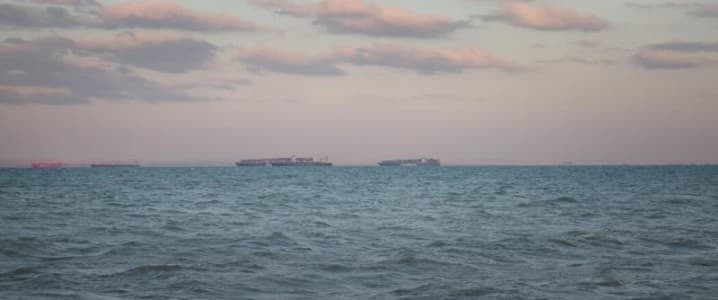A salvage operation is underway after the liquefied petroleum gas (LPG) tanker MV Falcon exploded and caught fire off Yemen’s coast, renewing concern over energy-shipping security in the Red Sea corridor, Reuters reported on Monday.
The Cameroon-flagged vessel, carrying a full LPG load from Oman’s Sohar port to Djibouti, suffered an onboard explosion over the weekend, approximately 113 nautical miles southeast of Aden. The EU naval mission EUNAVFOR Aspides confirmed the ship’s distress call as crews fought to stabilize the vessel.
Of the 26 crew members, 24 have been rescued and taken to Djibouti. Two sailors remain missing. The crew included 25 Indians and one Ukrainian officer, AP News reported. The fire continues to burn aboard the drifting ship, which is now being cooled by firefighting teams to prevent detonation of its pressurized cargo. A private contractor is assisting European naval forces in the salvage operation.
Automatic Identification System data reviewed by shipping analysts indicate the Falcon previously called at Iran’s Assaluyeh terminal before loading at Sohar, raising questions about the cargo’s insurance and routing compliance under current sanctions frameworks, gCaptain reported. Initial speculation suggested a projectile or drone strike, but EUNAVFOR’s latest statement said the blast appeared to have been “accidental in nature,” though investigation continues.
The Gulf of Aden is a key artery for LPG and refined-product shipments to Asia and the Middle East. Any prolonged closure or rerouting around the Cape of Good Hope would increase freight costs and voyage times. Insurers have begun reassessing risk premiums for tankers transiting the Bab el-Mandeb, with operators now reviewing whether to delay or divert upcoming energy cargoes through the corridor.
By Charles Kennedy for Oilprice.com
More Top Reads From Oilprice.com:

